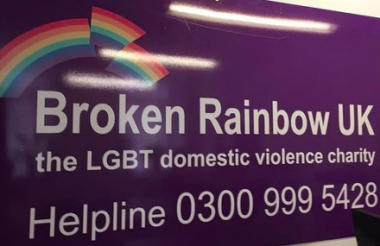The Home Office failed to meet its own monitoring requirements for grants it gave to a domestic abuse charity, and did not communicate effectively across government, according to the National Audit Office.
An NAO report, published today, said the department was unaware Companies House had published notice of its intention to close Broken Rainbow a month before the final £120,000 grant was given in April 2016. It also warned that other small charities could face similar issues and said that even though the government recently introduced new grant standards "more could be done" to encourage sharing of information between departments.
Between 2004 and 2016 Broken Rainbow received £1.4m in funding from the Home Office and the circumstances surrounding its collapse were compared to those of Kids Company by the Conservative MP and chair of the Public Administration and Constitutional Affairs Committee Bernard Jenkin.
According to the NAO report the charity had been "struggling financially for a number of years" and its "overall management processes were ineffective". However it concluded that no government body was "fully aware" of the issues or had "a clear remit to intervene".
It recommends improvements for monitoring similar organisations.
Living 'hand to mouth'
Some trustees told NAO they had contacted the Charity Commission seeking advice on how to manage the problems they found at Broken Rainbow, but had received no response.
It revealed the charity was operating “hand to mouth” for at least a year before it closed in May 2016, with more than half of each payment it received from the Home Office, intended to cover costs for the following three months, spent within 24 hours.
Most of the payments were spent completely within three days and when Broken Rainbow went into liquidation it owed money to its suppliers, staff, and to government.
A grant agreement signed by the Home Office and Broken Rainbow required the charity to submit an annual report and quarterly information on the performance of the helpline but no annual report was ever received and many of the quarterly returns contained no performance data.
The charity’s reserves shrank by 97 per cent in two years, from £80,083 in 2012/13 to £2,307 in 2014-/5, despite income increasing by 52 per cent over the same period.
NAO says Broken Rainbow’s “chaotic” management did not comply with regulatory requirements for a number of years.
For example, staff were asked to put office expenses on personal credit cards because suppliers had not been paid.
Filing deadlines were missed and the Charity Commission’s website contained errors about the organisation.
Companies House did not notice that directors listed in Broken Rainbow’s annual return were not registered, although it did actively pursue the charity for outstanding information.
There was a high turnover of trustees – three of the charity’s five board members in post at the time of its closure had only been there a few months.
Helpline transferred
The charity’s flagship LGBT domestic abuse helpline transferred to fellow charity Galop after Broken Rainbow’s closure without a break in service.
According to the report, the Home Office had paid Broken Rainbow for the helpline until the end of June, but Broken Rainbow collapsed at the beginning of June.
The Home Office did not lose any money because Galop inherited and paid the wages owing to helpline staff who transferred across, and provided the service for free for the first month.
In March 2017, the Home Office confirmed it was processing payment to Galop to reimburse the charity for some of these costs.
Recommendations
The report recommends that the government should take steps to provide better scrutiny of the grant payments it makes.
While it says departments do not have the resources to manually monitor other government websites that may contain information about grant recipients, it recommends making better use of automated monitoring of publicly available information and use this to trigger alerts, which would help to target scrutiny.
It says if the Home Office had automated monitoring of the Companies House website it would have known that it was proposing to close Broken Rainbow before it agreed to extend the grant.
NAO also calls on the government to ask recipients of grants for more information, as the details Broken Rainbow provided to the Home Office were “much more limited” than that which it sent to other funders.
See in Charity Finance
The report concludes: “It is not clear how existing processes would have detected that Broken Rainbow was failing to comply with the rules.
“Nor is it clear if any organisation is responsible for addressing non-compliance, either through support or enforcement. These gaps in the governance arrangements potentially affect all small charities.
“Light-touch regulation reduces the administrative burden on charities, but increases the risk that public money may be misspent.
“The government has made a number of changes to the supervision of grants since the collapse of Broken Rainbow, but more could be done to ensure that it makes the best use of the information it holds.”
Response to the report
A Home Office spokesman said the department would "carefully consider" the NAO's findings and recommendations.
"It would be inappropriate to comment further while investigations are ongoing," it added.
The Charity Commission's compliance case into Broken Rainbow is ongoing.
David Holdsworth, chief operating officer for the Charity Commission, said: “We are a risk-led regulator focused on applying our limited resources where they have the most impact. That includes taking tough action in the most serious cases of abuse and mismanagement in charities, as our increased number of compliance cases show.
"We welcome the NAO’s recognition that balancing the burden of regulation on small charities whilst ensuring sufficient scrutiny poses challenges. There are clearly lessons here for us to learn, which we have already started to address through our transformation programme, which is improving our ability to prevent, detect and tackle mismanagement in charities.”
|
Related articles












